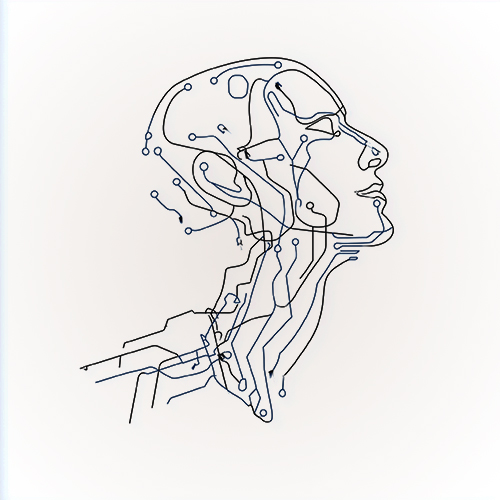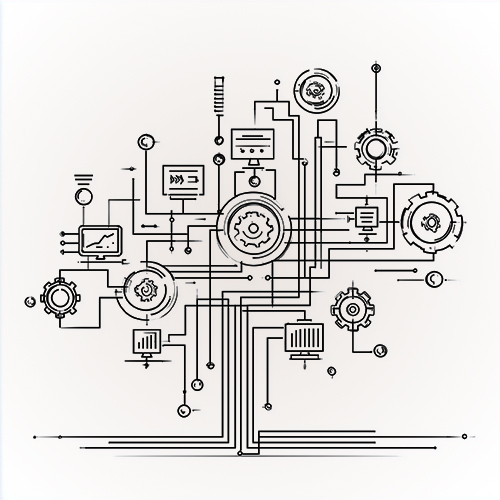An AI developed by Digia predicts: Ilves will come out on top in the Finnish Elite League ice hockey championship
According to an AI-based forecast, the reigning Finnish ice hockey champions, Tappara, will have to be content with second place this year. The AI forecast was published on Thursday, 9 November. on the MTV3 show Viiden jälkeen.
In April 2024, the final game of the Finnish Elite League (SM-liiga) ice hockey championship will be held in Pirkanmaa – this will be a dream match for the home audience, pitting the Tampere teams Ilves and Tappara head-to-head for the gold. In spite of winning the regular season, Tappara will have to swallow its pride – and Ilves will take the championship. The Lahti Pelicans will claim the bronze from under HIFK’s noses.
These predictions were made by an AI model developed by Digia and published on Thursday, 9 November. Read the forecast on Digia’s site (in Finnish). The forecast will be updated approximately once a month.
The AI forecast is based on mathematical modelling in which last year’s games have been “replayed” with the current compositions of the teams. Every match in this season will also round out the model. Hundreds of different factors that could have an influence on predicting which team will win were modelled. Of these factors, the 20 or so variables that were seen to have the greatest impact on the outcome were selected for the final model.
“The most significant factors with a bearing on forecasting accuracy included how successful players were at scoring goals in home and away games and the faceoff winning percentage. One example of a slightly more specific – and in that sense more surprising – variable is power-play goals by left wingers,” says Digia’s CTO Juhana Juppo.
You can read more about the implementation of the model here (in Finnish).
AI helps ice hockey fans and business executives with forecasting
Digia’s AI forecast is based on random forest modelling. This approach combines multiple decision trees and the final outcome is based on the result selected by the most trees.
Random forest modelling is useful not only for ice hockey fans, but also for business executives –
after all, the dynamic, fast-paced world of business has a lot in common with sports, where the final outcome is influenced by numerous variables. The performance of a single player or an unexpected event – such as a flu wave – can change the outcome of a game.
Business decision-makers face the same dilemma every day: how should they make decisions in a dynamic, constantly evolving business environment?
“This kind of machine forecasting yields good results when you have plenty of variables and want to determine which of them are important – that is, when we seek to steer the result in a certain direction, which factors in our organisation actually have the greatest impact? This kind of impact analysis facilitates forecasting and improving the results of operations,” says Juppo.
“The success of the winning team is influenced by X, Y and Z in the same way as, for instance, the fastest route and delivery time of a food delivery courier are affected by the traffic, weather conditions and the number of restaurant customers,” says Juppo.
Which will get it right – human or machine?
In recent years, sports betting has fully embraced data, advanced algorithms and AI. Have we already reached the point where AI is beating humans – or do people still have aces in the hole?
To find out, at the start of the season in September, we collected bets on who would win from around 300 Digia employees. If Digia employees got it right, Tappara will take home the gold for the third year running: they predicted that Tappara will be the champions, with HIFK taking the silver and Ilves the bronze.
Who should we believe? The AI will improve its forecast as the season progresses, as every game played this season will round out the model. On Digia’s site, you can follow the latest updates, check out historical data and track how the forecast has developed month by month. The original September forecasts will remain posted on the page. In April, you’ll find out whose prediction was better – the humans or the AI.
Compared to sometimes irrational human thinking, AI benefits from a certain systematic rigour. But it has its weaknesses, too, which mainly involve the data used to teach the model. Tacit information plays a major role in sports – and it’s missing from such data.
“For example, if we were to carry out the forecast from the opposite perspective, it could help teams to identify the factors that contribute to poor performance – that is, obstacles to success. This would provide the head coaches with valuable information on what they should focus on – both in terms of their team and individual players – to improve performance. So, the AI can handle the data crunching, while we can harness human intuition for the things that it’s best suited for,” says Juppo.
“As with any other tool, it’s essential to understand the strengths and limitations of AI in order to harness it effectively. You often get the best results by combining the insights generated by the machine and human intuition,” says Juppo.
Further information:
Juhana Juppo
CTO, Digia
Tel. +358 40 172 2859
juhana.juppo(a)digia.com
Kati Lindholm
Marketing and Communications Director
Tel. 040 543 6978
kati.lindholm(a)digia.com
Digia Communications:
Communications@digia.com
Digia is a trusted European partner in intelligent business. As a consulting, software and services company, we help our customers to create, maintain and develop intelligent business. We bring the benefits of AI to our customers' everyday processes, products, and services throughout their lifecycles. Our approximately 1600 employees operate internationally, yet always close to our customers. Digia’s net sales totalled EUR 217.0 million in 2025. The company is listed on NASDAQ Helsinki (DIGIA).




